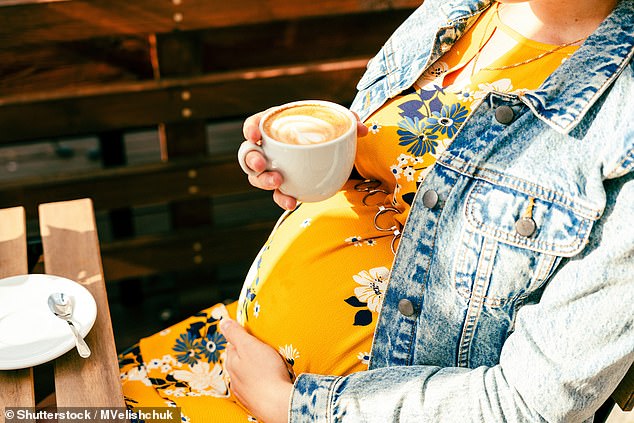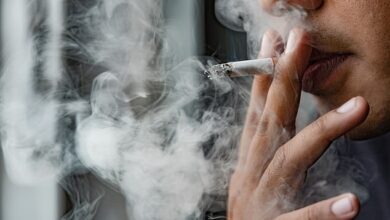Research shows that drinking coffee during pregnancy is not as dangerous as previously thought



It is a substance that pregnant women have had to avoid for years.
But coffee, a staple of office workers and commuters around the world, could be safer for expectant mothers than previously thought, a study of tens of thousands of women and their children suggests.
The discovery goes against previous research and years of advice from the NHS, urging women to limit their intake of the stimulant caffeine in coffee, or avoid it completely.
A leaflet distributed to pregnant women by the health service strongly warns that ‘a mug of coffee a day roughly doubles the risk of stillbirth’, adding that there is ‘no known safe level of caffeine’.
Yet research from leading Australian researchers suggests that some of these fears about caffeine are exaggerated and not supported by strong evidence.

Coffee, a staple of office workers and commuters around the world, could be safer for expectant mothers than thought, a survey of tens of thousands of women and their children suggests. Stock image
However, they added that women should still follow officials’ guidelines on daily caffeine intake limits.
Scientists from the University of Queensland examined data from tens of thousands of Norwegian families.
They chose this group because of Scandinavians’ general love of a cup of coffee and, compared to Britain, a lack of stigma surrounding pregnant women and coffee drinking.
Experts analyzed both genetic data from the families and questionnaires about coffee consumption during pregnancy.
They also interviewed parents about their child’s development in an effort to investigate a possible link with drinking coffee during pregnancy and the impact on their social motor and language skills at the age of eight.
But Dr Gunn-Helen Moen, an expert in molecular biosciences in Queensland, said no such effects had been observed.
“Our analysis found no association between coffee consumption during pregnancy and children’s neurodevelopmental problems,” she said.
This conflicts with previous research showing that expectant mothers consuming caffeine can cause children to have developmental delays.
Dr. Moen said previous research on this topic has not established whether caffeine is the cause of these problems, unlike other potential factors that can affect the fetus during pregnancy, such as alcohol or tobacco use or poor nutrition.
However, she claimed the team’s study, published in the journal Psychological Medicineavoided this by using genetic screening of participants to find those most likely to be coffee drinkers.
“It mimics a randomized controlled trial without subjecting pregnant mothers and their babies to any adverse effects,” she said.
‘The advantage of this method is that the effects of caffeine, alcohol, cigarettes and diet can be separated in the data, so that we can only look at the impact of caffeine on pregnancy.’
Previous research by the team has also suggested that drinking coffee during pregnancy does not affect birth weight, risk of miscarriage or stillbirth, contrary to NHS advice.
They hope that their research can be followed by further research to investigate which factors during pregnancy actually cause developmental differences in children.
The dangers of caffeine during pregnancy are related to physiological changes that occur in a woman’s body as a fetus develops, causing the stimulant to no longer be broken down as easily as before.

Have you ever wondered what exactly happens in your body after taking that first sip?
This can cause it to build up more than normal in the body and pass through the placenta to the fetus, which cannot process it.
That’s why the NHS advises pregnant women to limit themselves to 200mg of caffeine per day, which is equivalent to two cups of instant coffee.
To stay within this limit, expectant mothers should also watch out for other sources of caffeine, such as tea, soda and energy drinks, and chocolate.
British guidelines, which are being adopted in the US, on caffeine intake during pregnancy are stricter than the international standard.
The World Health Organization recommendation is that women should reduce their intake to less than 300 mg per day.
Research on the impact of coffee, or more specifically caffeine, during pregnancy has mostly shown negative effects.
Earlier this year, Chinese research linked coffee intake during pregnancy to an increased risk of autism in children, based on experiments in rats.
Previous research has also linked coffee consumption to reducing nearly an inch of children’s potential height, with experts theorizing that this is a result of the stimulant constricting the blood vessels that nourish the developing fetus.




